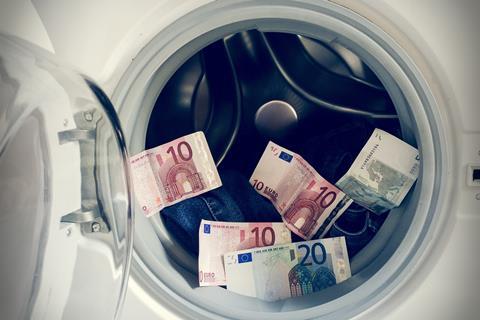When it comes to money laundering, London and residential property take the lion’s share of headlines, but making dirty money clean is an activity that is widespread across the UK, with prosecutions associated with commercial property common.

More than £90bn is estimated to be laundered through the UK each year. Research from Transparency International, the not-for-profit organisation that combats corruption, has identified real estate worth more than £5bn as still being in ownership after having been bought with ‘suspicious wealth’.
In November, the National Crime Agency (NCA) recovered property worth £8.1m in the West Country, including a seven-bedroom converted barn and mill holiday-let property in Somerset, a Georgian townhouse in Bath run as a small hotel and a former telephone repeater station. These businesses generated a combined rental and commercial income of more than £2m. NCA investigators believe the portfolio was acquired through mortgage fraud and drug dealing.
This is not an isolated case. Despite a slowdown over recent years, rising property prices mean bricks and mortar is a safe bet for criminals. Commercial property has an advantage over residential in that it generates income while offering a presentable front behind which fraudulent activities can hide.

Criminals tend to target struggling businesses and rundown shops. Cash-based businesses such as restaurants and pubs, nail bars and tanning shops provide an income for their owner, while acting as a cover for monies derived from drugs, people trafficking or prostitution. Often many businesses hide behind one company, with so-called ‘ghost’ invoices passing between them to release more cash to spend.
In 2014, a Bradford businessman used profits from laundering millions of pounds to fund a property portfolio including a local landmark – a former tram shed bought for £2.5m, which he said he planned to turn into a retail park. But it became a front for multiple businesses and fraudulent activity that led to a six-year jail sentence for its owner.
Whether it is a hotel, a holiday let, a retail park, an office block or even a golf course, commercial property is subject to the same level of due diligence as residential. Layered companies, trusts and venture capitalists undoubtedly make commercial property fraud harder to unravel – but this often leads to the recovery of larger sums of money and more players.
HMRC is stepping up efforts to crack down on money laundering, including estate agents who may be unwittingly non-compliant – this is no defence and the fines for those who are found out are large.
Jerry Walters is MD of Financial Crime Services






























No comments yet